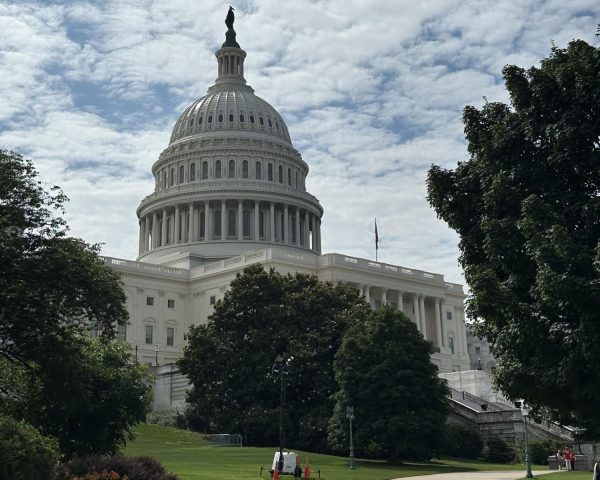USG Approves Academic Transparency Proposal
The United Student Government (USG) Senate has approved a proposal that would add midterm transparency to the faculty handbook. If approved by the Faculty Senate, faculty would have to notify students of their midterm grades two weeks before the pass/fail deadline. The proposal is sponsored by Vice President of Fordham College at Rose Hill (FCRH), Jonathan Eng, FCRH ’23.
“This proposal was something that I decided to work on as I was running for election of VP of FCRH last year. With the shifting modalities both last year and this year, many students experienced classes where communication on their grades was unclear or non-existent,” said Eng.
Eng said that STEM students in particular face this disadvantage because many of their classes are graded on a curve at the end of the semester. When the curve and perspective grade fail to be communicated to students, the lack of transparency can cause increased stress.
“In our proposal we further include several student testimonials regarding their experience with grade transparency,” said Eng.
“This proposal is meant to enter into a dialogue and discussion with faculty members. Many students want to be able to reach out and request their current grade from a professor but don’t feel confident enough to do so. Some student groups are even more vulnerable to this lack of empowerment,” said Eng. “By opening this dialogue with professors, we aim to share the student voice and to uplift the will and perspective of students that wouldn’t be able to do so themselves.”
Eng also believes that both faculty and students will benefit from this policy. “Requiring that professors report grades increases student’s opinions on the learning experience of faculty and subsequently boosts RateMyProfessor and SEEQ evaluations,” said Eng.
Alex Tamsi, FCRH ’24, feels that class size can also determine a professor’s grading time. “My professors almost always return our grades, but in big classes with around 30 students, sometimes those grades come late or without feedback. I think that the proposal is a good idea because it allows students to both be aware of and act on their academic performance before the deadline,” said Tamsi.
The withdrawal deadline occurs the 14th week of the 15 week semester, so students should have a better idea of their final course grade with the exceptions of any final project and examination, said Eng.
Before the proposal was approved by FCRH Dean’s Council and then the USG Senate, it was brought before Maura Mast, dean of FCRH. Eng said a possible issue that was discussed was instituting it into the faculty handbook. Even if the proposal was included, there is not a way to guarantee that the faculty would actually report grades by the withdrawal deadline.
Eng said that when he and Gaby Simporios, FCRH ’24, who is the chair of the STEM subcommittee on the FCRH Dean’s Council, brought the proposal to the Faculty Senate on Thursday, they wanted to keep the aforementioned discussion in mind because the department chairs have the ability to reach out to the faculty in their department and request that. The proposal was not approved by the Faculty Senate at this meeting, but Eng and Simporios are going to continue to do more in depth research to present at the next meeting with them.
While many students wanted an expansion to pass/fail, Eng feels that this proposal is a right step towards more transparent communication.
“Fordham prides itself on its unique commitment to cura personalis, and the care and development of each student to an extent that other universities are unable to emulate. To truly uphold this principle, academically, there needs to be transparency in communication and grade reporting,” said Eng.

Emma Kim is a junior from Pittsburgh. She is double majoring in economics and English. She started as a contributing writer for news in her freshman year...











































































































































































































